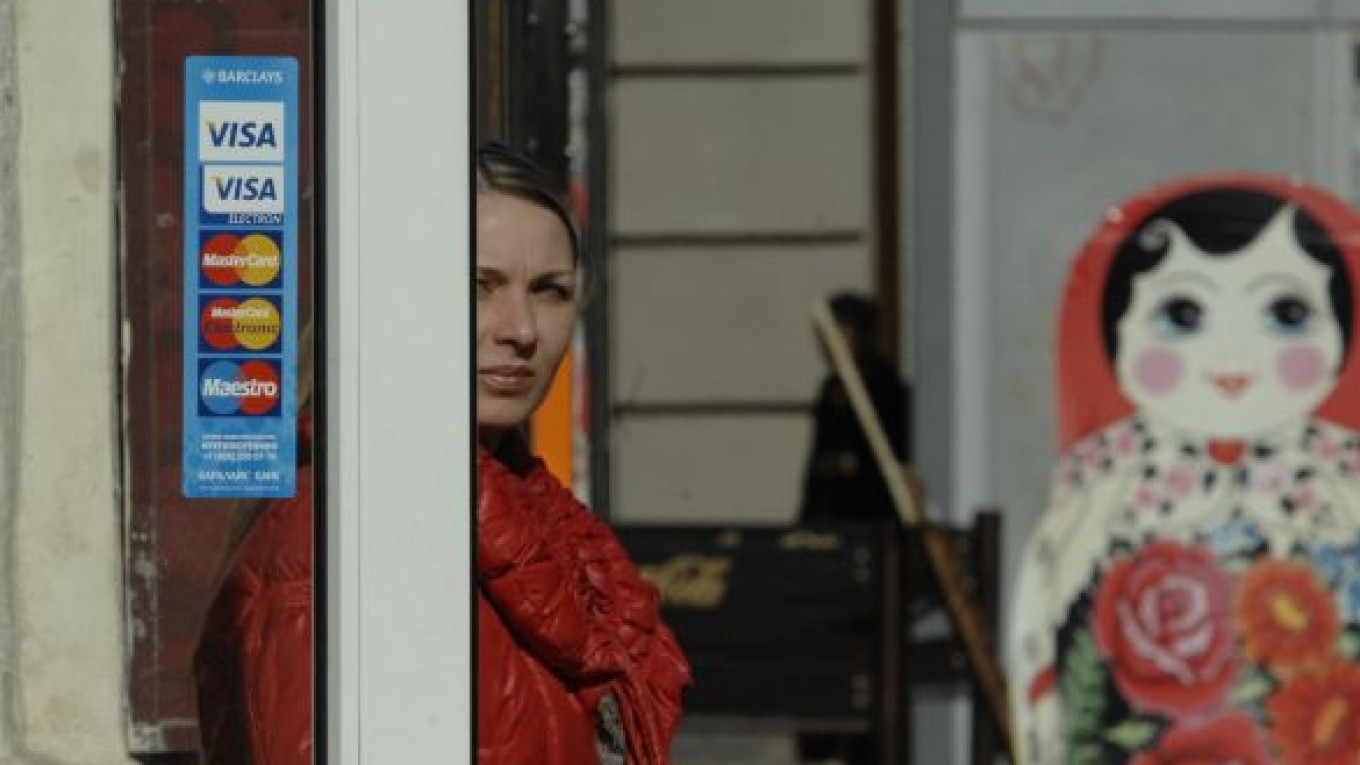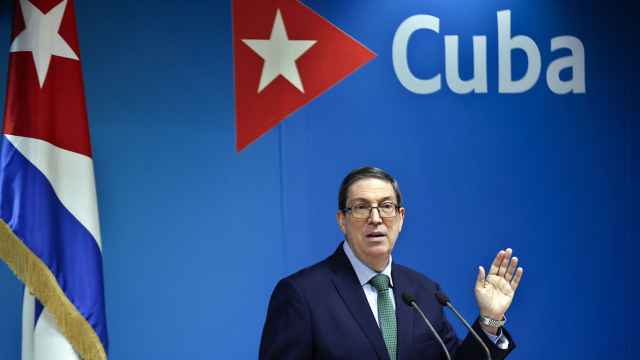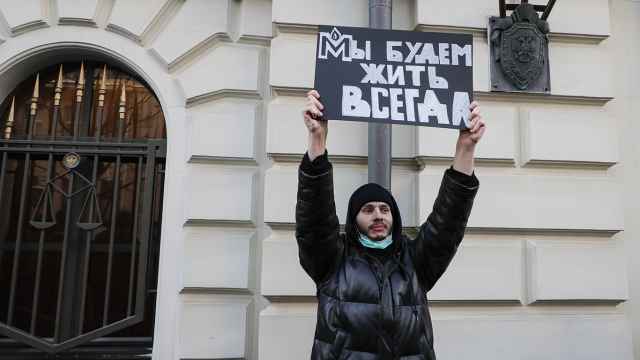Electronic payments using a Qiwi account have gone global now, thanks to a project announced Tuesday by the local terminal provider and Visa — called Qiwi Visa Plastic, which will provide rechargeable plastic cards to the low-end segment.
The plastic card will tap funds from a Qiwi Koshelyok account and can be used at any store or ATM in the world that accepts Visa. If a client wishes to withdraw funds from an ATM in a different currency, a fee will be charged, in line with Visa's standard policies.
"The rate is far more advantageous than it would be to exchange cash," said Visa's director for development in Russia, Andrei Bylegzhanin. "Banks are almost always more expensive, and you could always lose your money, someone might steal it — anything could happen."
There will be no commission on purchases in stores, but 3 percent will be charged on all ATM withdrawals and 1.5 percent put on top of any Internet purchases.
Funds are deposited into the owner's digital "koshelyok," or wallet, through any Qiwi terminal, an iPad application or online. "If your friend is sitting in a cafe and he doesn't have enough money to pay for his coffee, he can call you and ask you to transfer funds," said Qiwi Bank's vice president for business development, Yury Demidovich. "All you have to do is go to any Qiwi terminal and transfer funds with his number."
The card would most likely be used by freelancers, teenagers and migrant workers, said Qiwi board member Boris Kim.
"If you are doing repairs at your dacha and don't have enough money to pay the contractors, you can simply have your wife transfer funds to your koshelyok," Demidovich said.
However, it only serves as an interface for koshelyok accounts. All the limits of the program, specifically, a maximum balance of 15,000 rubles ($500), are the same as for the card.
A new law to go into effect in 2012 will also play a large role in regulating electronic purchases. The law defines electronic payment systems, the requirements of involved parties and monitoring procedures. An electronic payment should not exceed 15,000 rubles, and the monthly limit is 40,000 rubles.
The card offers opportunities for transferring money across borders, and its ability to instantly provide extra funds appears to be another step in developing a culture for credit cards in Russia.
"There have already been similar programs in the U.S. and Europe, specifically Germany," Kim said. "The potential of this product appears very, very high."
A Message from The Moscow Times:
Dear readers,
We are facing unprecedented challenges. Russia's Prosecutor General's Office has designated The Moscow Times as an "undesirable" organization, criminalizing our work and putting our staff at risk of prosecution. This follows our earlier unjust labeling as a "foreign agent."
These actions are direct attempts to silence independent journalism in Russia. The authorities claim our work "discredits the decisions of the Russian leadership." We see things differently: we strive to provide accurate, unbiased reporting on Russia.
We, the journalists of The Moscow Times, refuse to be silenced. But to continue our work, we need your help.
Your support, no matter how small, makes a world of difference. If you can, please support us monthly starting from just $2. It's quick to set up, and every contribution makes a significant impact.
By supporting The Moscow Times, you're defending open, independent journalism in the face of repression. Thank you for standing with us.
Remind me later.






